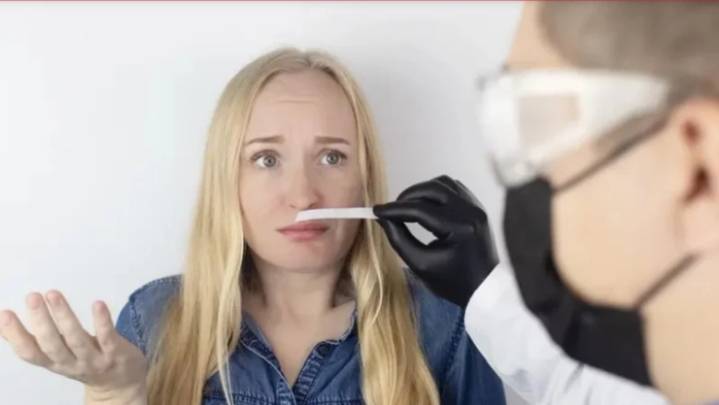Many people who were infected with the coronavirus experienced changes in their sense of smell, and in some cases, this sense did not return to its previous state properly. A new study published in the journal "Science Translational Medicine" indicates that the SARS-CoV-2 virus continuously attacks the immune system on the neurons in the nose, leading to a decrease in the number of those neurons and making people incapable of smelling as they usually do.
In response to a puzzling question, neuroscientist Bradley Goldstein from Duke University in North Carolina stated, "Fortunately, many people who have a changed sense of smell during the acute phase of the viral infection will regain it over the next week or two, but some cannot. We need to better understand why this subset of people continues to experience a loss of smell for months or even years after being infected with SARS-CoV-2."
To investigate this, a medical team studied samples of nasal tissue taken from 24 individuals, including nine who suffered from long-term loss of smell after COVID-19. This tissue contains the neurons responsible for detecting odors. After a detailed analysis, researchers noted a widespread presence of T cells, a type of white blood cell that helps the body fight infection. These T cells were driving an inflammatory response within the nose.
The medical team found that T cells were doing more harm than good, as they were damaging the olfactory epithelial tissue. They also discovered that the inflammation process remained evident even in tissues where SARS-CoV-2 was not detected. Goldstein remarked, "The results are striking. It's almost like a kind of autoimmune process in the nose."
While the number of olfactory sensory neurons was lower in study participants who lost their sense of smell, researchers reported that some neurons appeared capable of self-repair even after being bombarded by T cells, which is an encouraging sign.
The researchers suggest that similar inflammatory biological mechanisms could be behind other long COVID symptoms, including extreme fatigue, shortness of breath, and "brain fog" that makes concentration difficult. The research team sought more details about the specific areas of tissue that were damaged and the types of cells involved, which could lead to the development of potential treatments for those suffering from long-term loss of smell. Goldstein stated, "We hope that adjusting the abnormal immune response or repair processes within the noses of these patients may help them regain at least some sense of smell."




